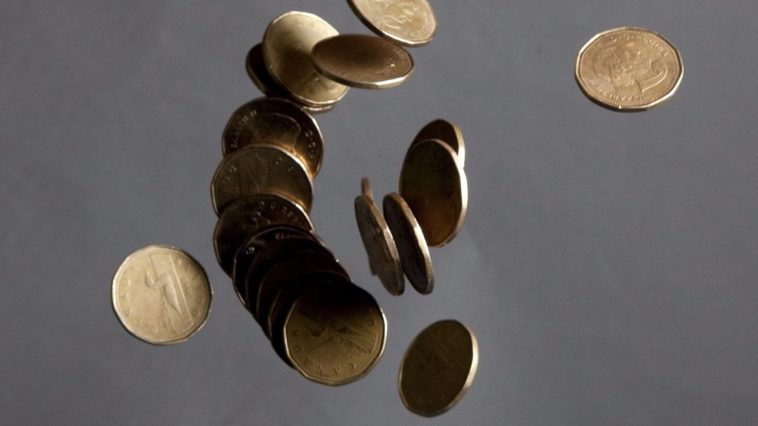Scotia likes the loonie, copper miners for 2021
/cloudfront-us-east-1.images.arcpublishing.com/tgam/5L2QPG5ICJJTBEFVC4TLLKGWMY.jpg)
Daily roundup of research and analysis from The Globe and Mail’s market strategist Scott Barlow
Scotiabank strategist Hugo Ste-Marie sees a strong loonie and an upward move for base metals miners for 2021.
“Accelerating growth, dollar weakness, and a decade of falling capex in the mining industry could offer decent support to commodity markets in 2021/2022. However, the backdrop could be more supportive of base metals/energy than precious metals/gold. A wave of investment in green energy over the next few years bodes well for copper. Regarding energy, we believe oil & gas stocks have probably much more upside than the commodity. For bullion, USD weakness should help, but lower uncertainty is usually less friendly, and real U.S. 10-yr bond yields (while still extremely low) could face upward momentum. We believe gold could trade sideways in a broad range unless inflation pressures accelerate. The environment should help the CAD to reach, and potentially exceed, the US$0.80 mark next year.”
“@SBarlow_ROB Scotia likes CAD, copper over gold for 2021” – (research excerpt) Twitter
***
Citi U.S. equity strategist Tobias Levkovich is not as bullish as most pundits, seeing much of the upside for a post-pandemic recovery already priced into stocks.
“Our Panic/Euphoria Model suggests caution and valuation is stretched with upward earnings revisions peaking. We envision modest S&P 500 upside in 2021, as much has been pulled forward into late 2020. Economic conditions should benefit from recovering capex and consumers that want re-engage after being unable to enjoy many activities owing to fears of COVID-19 infections and lockdowns. Hence, EPS trends should be strong but it seems as everyone is well aware of it… the trillion-dollar market cap companies captured growth due to their ability to gain share from incumbents, while being defensive as a result of “bullet-proof balance sheets and free cash flow, plus they intersected the large size element. Thus, any unwinding of this crowded trade given regulatory issues, higher bond yields, anti-globalization forces, a weaker dollar and/or a desire to get positioned for more economically sensitive businesses as things re-open alongside vaccines, should benefit almost the exact opposite of the work-from-home/shelter-in-place beneficiaries of 2020.”
“@SBarlow_ROB Citi: “We envision modest S&P 500 upside in 2021” – (research excerpt) Twitter
***
Echoing Mr. Levkovich’s concerns about excess optimism, Jason Goepfert from Sentiment Trader notes that very few sophisticated investors are hedged against a market decline.
“Our Option Speculation Index shows that bullish volume is significantly higher than bearish volume. Adding to the concern is that hedging activity, in the options market or elsewhere, has become scarce. The Equity Hedging Index (EHI) is now in the lowest 6% of all readings since 1986. The EHI looks at the most common ways an investor would hedge their portfolio … Since 1986, when the EHI is below 21 [currently 20.6] the S&P 500′s annualized return has been -2.4% versus +49.8% when the EHI is above 85, suggesting a higher probability of lower returns now given the current reading of the indicator.”
“No need to hedge when stocks only go up” – Sentiment Trader
***
Diversion: ” The 50 Best Podcasts of 2020″ – The Atlantic
Tweet of the Day: ” @BrianFeroldi History of U.S. Bull & Bear Markets” – Twitter
Be smart with your money. Get the latest investing insights delivered right to your inbox three times a week, with the Globe Investor newsletter. Sign up today.
Published at Mon, 28 Dec 2020 12:49:12 +0000






Comments
Loading…